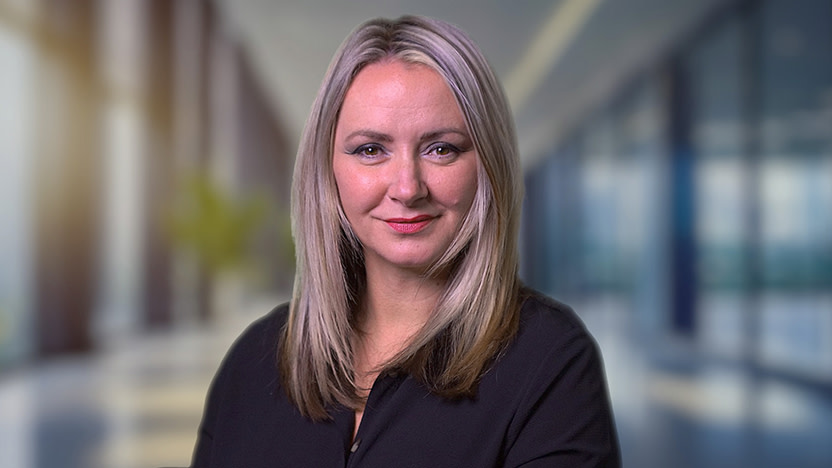
Medical negligence
I’m a clinical negligence lawyer, what should you do if your doctor isn’t listening to you?
There may be a situation where you feel that your GP, doctor, nurse or medical practitioner isn’t listening to your health concerns. One of our clinical negligence experts, and Principal Lawyer, Kelly Lloyd Davies offers guidance.
There may be a situation where you feel that your GP, doctor, nurse or medical practitioner isn’t listening to your health concerns.
If you are worried for your health and feel that you are being dismissed by a medical professional, this can be a very stressful situation and can lead to an unnecessary deterioration in health.
We spoke to clinical negligence Solicitor and Principal Lawyer, Kelly Lloyd Davies at Slater and Gordon to understand more about what you should do in this situation, to ensure that you are receiving the necessary care you need.
What are signs that your doctor isn’t listening to you?
Some common signs that indicate your doctor isn’t listening to you may include:
Refusing to see you in-person
If your GP keeps insisting on carrying out phone consultations for your serious health concerns that ideally require an in-person assessment, this may appear that they are not entirely engaged with your needs.
Long appointment wait times
While waiting for an appointment is common, excessive delays such as weeks or months for urgent concerns could indicate that your GP isn't prioritising your health.
Dismissing your suggestions
You may feel that your GP is not taking your input seriously after your GP refuses to consider your research or concerns that indicate a possible diagnosis.
Failure to follow Up
Following an initial consultation or test results, if your GP doesn't check in on your condition, it can be a sign that they aren't fully invested in your care.
Rushed or dismissive communication
Feeling rushed through an appointment or having your symptoms attributed to anxiety without proper investigation can be frustrating.
What should you do if your doctor isn’t listening to you?
It can be a highly stressful situation if your doctor isn’t showing signs that they are taking your concerns into careful consideration and you are unable to move forward in resolving your health problems.
Some guidance on what you can do in these challenging circumstances include:
- Be clear and direct with your GP
When you are explaining your symptoms and concerns with your doctor, make sure you are being clear and concise. If necessary, write them down beforehand to ensure nothing is overlooked, which can enable you to feel more confident in what you are discussing.
- Ask questions
If your doctor dismisses your concerns, ask why. By requesting explanations for their decisions, you can further understand where how and why your doctor has come to their conclusion. You can even inquire about alternative treatments.
- Seek a second opinion
If you feel unheard, consider seeing another doctor or specialist for a fresh perspective.
- Bring an advocate
Having a friend or family member with you during your appointment can help reinforce your concerns and ensure they are taken seriously.
- File a complaint
If you believe your doctor is consistently failing to listen, you can raise a complaint with the practice or escalate it to the General Medical Council. There are also official services available to make a formal complaint about a GP or a practice, such as through the practice’s website, email, The Friends and Family Test or the Health Service Ombudsman.
Access our template here for guidance on how you can highlight poor care to your healthcare provider.
- Consider legal guidance
If you suspect you may be experiencing medical negligence, consulting a medical negligence lawyer may be an option to support you further.
By reaching out to a lawyer, they can provide bespoke guidance on your situation and your medical negligence claim. Kelly Lloyd-Davies explains further:
“Listening to patients is a crucial part of healthcare. If you feel unheard or if your concerns are dismissed, you have the right to advocate for yourself. If this fails, you can take legal advice from a lawyer and potentially take legal action.
“Instructing a clinical negligence solicitor to investigate a clinical negligence claim will provide answers to your questions and the opportunity to ask further questions should you need to. The answers will be provided by independent experts who will be specialised in their field.
“If you decide to instruct a clinical negligence lawyer, they will gather and will review your medical records in order to investigate a potential claim against your medical provider.
“In order for a clinical negligence claim to be successful, your lawyer would need to obtain supportive medical evidence from independent experts to confirm that there is negligence, that is, that the care provided fell below the reasonable standard expected in the circumstances.
“Once we have obtained medical evidence to confirm there was negligence (that there was a breach of duty of care), we then have to show that the negligence directly led to/ caused harm or worsened your condition.
“Once we have obtained supportive evidence to show that the negligence directly led to harm or worsened your condition we can then formally write to the medical provider (GP, Hospital Trust or Health Board, Dentist etc) setting out the detailed allegations of negligence against them. They will then have the opportunity to respond, at which stage, you will be informed if they admit or deny causing you harm.”
Learn more about how you can advocate for yourself
We want to empower you to feel confident taking action for yourself. If you have a health concern, you deserve to receive fair treatment .
Visit our self-advocacy website to learn more about your rights as a patient, how to get support and access our self-advocacy toolkit here.
Our medical negligence team at Slater and Gordon Lawyers understand the importance of supporting you and your family through these difficult moments. If you are seeking legal support for your claim, reach out to our team today on 0330 041 5869 or contact us online.

